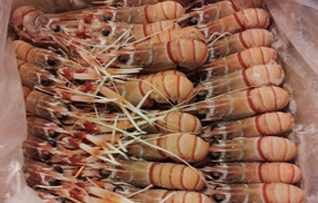 mpany, scientists and engineers have joined forces to help refocus the New Zealand scampi industry from frozen commodity production to live export trade to realize its estimated NZD 200 million (USD 166 million, EUR 121 million) annual export potential.
mpany, scientists and engineers have joined forces to help refocus the New Zealand scampi industry from frozen commodity production to live export trade to realize its estimated NZD 200 million (USD 166 million, EUR 121 million) annual export potential.The initiative is being led by Cawthron Institute in collaboration with Waikawa Fishing Company, University of Auckland and Zebra-Tech.
Program leader and Cawthron scientist Shaun Ogilvie said the initiative marks the first major advance in the scampi fishery since it began in the late 1980s and “its success will revolutionize the scampi industry.”
“The vision of our team of researchers, technologists and fishing industry specialists is to enable future generations to benefit from access to kaimoana and export growth by linking matauranga Māori with leading-edge research, innovative design and engineering.”
The program will receive NZD 1.5 million (USD 1.2 million/EUR 910,437) annually over six years from the Ministry of Business, Innovation and Employment (MBIE) 2013 to develop more sustainable, commercially attractive harvesting methods, and establish land-based aquaculture systems for domestication.
The team will be combining sustainable Māori harvesting methods with new technology to help achieve their goals. Current annual New Zealand export earnings from scampi are NZD 21 million (USD 17.4 million, EUR 12.8 million), but the team believes the potential for the sector is far greater.
“Through the development of more efficient, effective and environmentally-friendly harvesting technologies we’re aiming to support the industry to increase this to NZD 200 million in annual exports by 2030,” said Ogilvie.
A new hatchery has been built at Cawthron Aquaculture Park near Nelson to improve understanding of New Zealand scampi and establish the world’s first captive breeding program for the species.
A multi-disciplinary team of experts are also involved in the program, helping with everything from pot design and field-testing to improved ship-board transport, land-based aquaculture and economic modeling.
The program will be advised and guided by an international technical advisory group of industry, marine technology and science experts including Maori fishing quota holders, and marine technology, science and fishing industry peers from Scotland, Portugal, Norway, U.S. and Japan.





